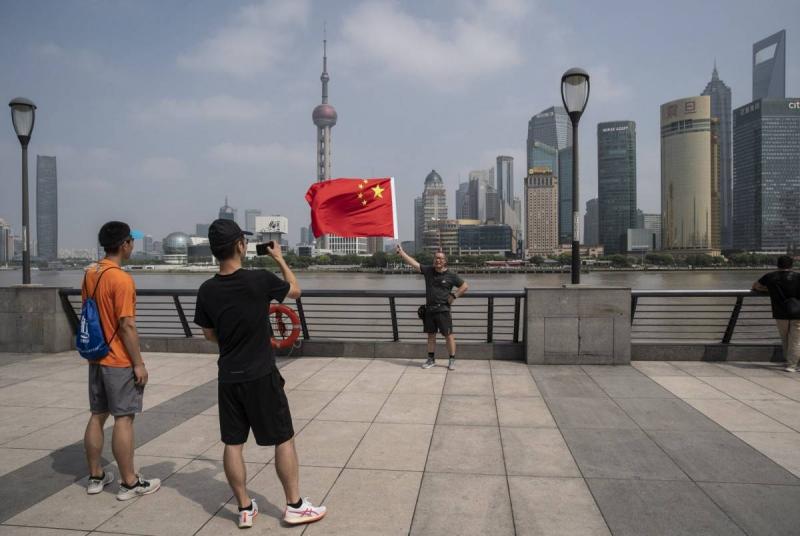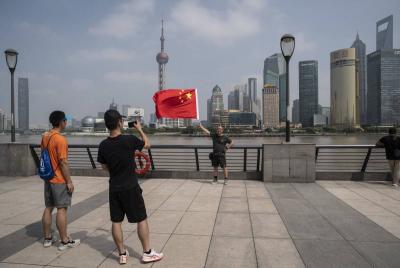With the rapid changes occurring in the Middle East, particularly with China's presence and the resulting sponsorship of the Saudi-Iranian agreement, the question arises: will a new regional system emerge amid the rapprochement taking place between some countries, which operate under the slogan of "zero problems"? A Saudi-Syrian rapprochement has surfaced, expressed by officials from both countries, with Syrian President Bashar al-Assad stating that the Kingdom did not fully engage in the war against Syria as other Arab or foreign regimes did. This remark follows Saudi Foreign Minister Faisal bin Farhan emphasizing the necessity of Syria's presence in the Arab embrace, declaring it essential for the Arab world, and indicating plans for a visit to Syria and the reopening of embassies between the two nations.
Prior to Saudi Arabia, the United Arab Emirates restored relations with Syria, which it had not completely severed, being the first to provide aid following the earthquake that struck Syria, encouraging other Arab countries such as Jordan, Egypt, Iraq, Tunisia, and Algeria to come to Damascus and offer assistance.
The region is in the process of rearranging its affairs, according to one researcher specializing in political and military matters through a strategic and scientific reading, suggesting that it is premature to discuss a regional system in the area, taking into account past events and viewing current developments through the lens of national interests. The dialogue between Egypt and Turkey is notable, as Egypt faces the "Muslim Brotherhood," from which Turkey is derived through the ruling Justice and Development Party, which holds "Brotherhood" ideologies. Consequently, mutual interests have taken precedence over ideological differences, and Ankara has retreated from sheltering "Brotherhood" members fleeing from the Egyptian regime, rationalizing its political discourse and basing it on realism—similar to its approach with Syria, which continues to reject the reception of Turkish President Recep Tayyip Erdoğan until Turkish withdrawal from the occupied Syrian territories occurs, as confirmed by President Assad, who indicated it is too early for relations with Turkey to resume, although security dialogue has commenced, with officials from both countries meeting under Russian auspices.
The reorganization of relations extended to Iran and the UAE, where Iranian National Security Council Secretary Ali Shamkhani visited, and his meetings in Abu Dhabi were reported positively by officials of both countries, reflecting their desire for stability in the region, particularly in the Gulf, which has become a priority for national security and is a strategic waterway for vessels carrying oil and food supplies.
The unfolding dynamics among regional countries suggest an effort to resolve disputes to reorganize internal matters across various platforms. If the parties convene in a communal setting, sitting around a dinner table, then the kitchen will have succeeded in cooking a collaborative system among regional countries based on security and stability that bolsters the economy. This demand for "Gulf security," if established, would lead the region towards prosperity by closing the doors to war and opening up avenues for development and economic growth, which is the role China plays in the region and globally.
This stands in contrast to how the U.S. has operated, offering security to regimes while requesting payment for protection, establishing military bases in their countries to defend them against an enemy that the U.S. invented, sometimes labeled "communism" and at other times as "Shiism," the former led by the Soviet Union, which the U.S. formed alliances to combat under the name "Baghdad Pact," established by President Dwight Eisenhower, and the latter led by the Islamic Republic of Iran.
The rapidly evolving international and regional developments will necessitate changes in "geopolitical geography," and the world will not be led by a single pole headed by the U.S., which is no longer the "sole leader of the world," but rather one among major powers competing with Russia and China, while European nations remain subordinate. The global map is shifting with the emergence of countries like China, often referred to as the "giant," emphasizing economic interests over ideological motives; it does not follow the Silk Road to spread "Maoist Communism," but rather to market its products, which the U.S. criticizes as being adapted from Western industrial models. However, China has advanced in the industrial sector and has its own innovations, according to observers of Chinese developments in technology, contracting, and light industries, positioning itself as the world's leading exporter with a favorable trade balance, a fact acknowledged by successive U.S. administrations, illustrated by former President Donald Trump’s imposition of measures and sanctions against Chinese industrial exports flooding the American market.
Establishing a regional system involving the Arab world or some of its countries, along with Iran and Turkey, seems distant in the near future but is not impossible. Countries forge alliances based on their interests, as seen with the BRICS nations—China, Russia, India, Brazil, and South Africa—effectively asserting their economic and even military presence. The U.S. now feels its decline, and the Gulf states are no longer compliant, making it impossible for Washington to deploy its "enforcers" (the American police) as nations balance their interests.




